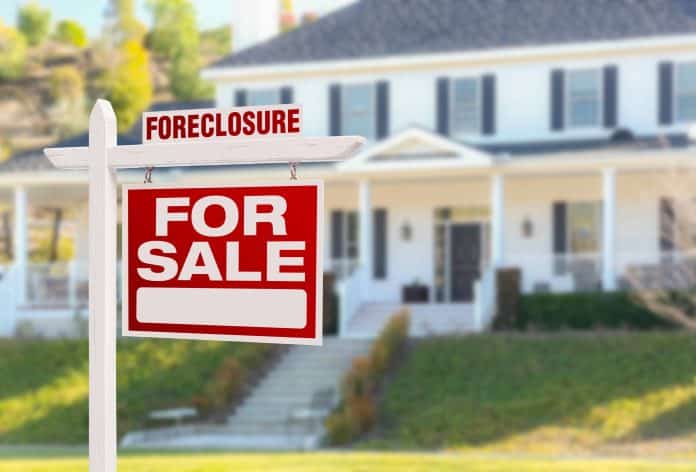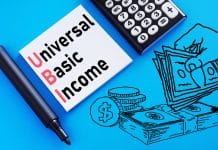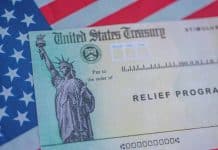
If you are trying to decide where to buy your next house, the housing market offers a variety of options. A foreclosed home is one type of property you might be interested in. Because homes in foreclosure typically have a much more affordable price, people frequently choose this option when buying a home. There may be a discount on the price, but there is a catch. The problem is that you cannot be sure of the property’s maintenance history; it might be a mess. There are many concerns you might have when purchasing a property in foreclosure. You may be able to get some answers to many of your questions from this article.
Foreclosure 101: What You Need to Know
The foreclosure process occurs when a bank or a lender takes over and owns a residential property because the borrower was unable to repay the debt. A borrower is typically the person who lived on the property, while a lender could be a mortgage company. After the borrower vacates the property, the bank puts it back on the market and makes an effort to sell it. In this manner, the bank can minimize the losses that happened because of the borrower’s inability to repay the mortgage.
Foreclosure listings are often placed up for sale at a reduced price, or the bank auctions them off. Families that are unable to pay back their mortgage debts usually lack the resources to maintain their homes. For this reason, when you purchase a property that is in foreclosure, you should prepare for significant home repairs.
Why Are Foreclosed Homes Cheaper in the Market?
The lower price is the main factor influencing potential homebuyers’ decision to consider this type of house. These cheap prices are considerably less expensive than their similar alternatives. You will find that these homes also have additional discounts on the price. Lower down payments, interest rates, and closing expenses are a few examples of these additional discounts.
Homebuyers also choose these kinds of properties because they focus on the idea that the sellers are likely to be in financial difficulty. For instance, a house that is now in pre-foreclosure means that the owners are willing to sell the house. Since the sellers are eager to sell the house, the homebuyers in this situation are in a better position to negotiate the price.
The takeover of the property from the current owners will be more beneficial to homebuyers. This is because these houses are less expensive because they are offered for sale as-is. A person will most likely struggle to keep the property if they are having trouble paying their mortgage.
Finding a Foreclosed House
It might not be as simple as you think to find a home that is in foreclosure. Online searches, newspapers, and multiple listing service (MLS) websites are the best places to start looking for properties in foreclosure. When reviewing these properties, keep an eye out for any mentions of foreclosure. The property description contains information about the property that you may not see in the headline. You can also speak with a neighborhood real estate agent to ask about any opportunities they may know about.
Different Listings
When searching for properties in foreclosure, you will come across five main types of foreclosures. These five types are as follows:
- Pre-Foreclosure homes
- Short sales
- Auction homes
- Directly purchased by the bank
- Properties that the government owns
Pre-Foreclosure Homes
The foreclosure process begins with pre-foreclosure properties. This is when the lender contacts current borrowers and issues a notice of default on the property. Before putting up the house for auction, there is a pre-foreclosure. The homeowner will get a letter telling them that the foreclosure process will begin during the pre-foreclosure phase of the procedure. Property owners frequently try to sell their home as a pre-foreclosure property. Pre-foreclosure homes come with benefits for potential buyers since the owners are desperate to sell them so they can try to repay their loans.
Short Sales
A short sale is when the lender takes less money for the house than what is owed on the mortgage. Lenders might approve a short sale even if borrowers are not in default. However, if a lender approves a short sale, the current owner will have to show evidence of their financial hardship. This can involve a loss of employment or evidence of financial difficulty. When searching for foreclosed properties, short-sale properties are most frequently considered as pending bank approval listings.
The process of buying a short-sale home is quite similar to the traditional home buying process. However, the language in the contracts differs, which is the only change that you may notice. The short sale purchase process may take longer than a typical property purchasing process, as you will see. This is why it is crucial to consider it while you think about your options.
Auction Homes
When the borrower’s grace time to settle their mortgage after receiving a notification ends, a sheriff’s sale auction is the following step. Since the loan is in default, this auction aims to ensure that the lender gets their money as quickly as possible. You can find these auctions across a variety of settings. These auctions are typically held in front of a government facility. In addition, you will see signs promoting the auction.
Directly Purchased from the Bank
When an auction fails to sell a property, it goes back to the bank. At this point, the property is an REO (real estate owned) property. Finally, you can avoid the hassle of going to auctions by buying the property straight from the bank.
Properties That the Government Owns
If a property is bought with a federally backed loan, such as an FHA loan or a VA loan, it is repossessed by the government rather than a financial institution. When the government regains possession of the property, government-registered brokers sell it. So, if you are thinking about purchasing a government-owned property, you should contact these brokers. Moreover, potential homebuyers can research their alternatives on the website of the United States Department of Housing and Urban Development (HUD).
Disadvantages of Buying a Foreclosed Property
Purchasing these kinds of properties has many benefits, including lower costs. Nevertheless, buying a property that is up for foreclosure has its drawbacks as well. These negative aspects may include:
- Issues With the Place
- Additional Expenses
- Slow Process
- Market Competition
Issues with the place
When you buy a house in its current condition, you should be aware that there is a significant amount of risk involved. Risks may result from the extensive repairs you may need to make. There are also likely to be some minor repairs that you must take care of. In addition, bear in mind that previous owners are mostly not very cooperative. Before the bank acquires the property, a person who is going through a foreclosure can take it out on the house. In this case, you will be in charge of cleaning up the mess they caused.
Additional Expenses
These properties may appear to be too good to be true, which is why you must be prepared to deal with any potential hidden costs. Hidden expenses like liens or unpaid taxes may result in higher costs for a home that may have been damaged. So, be careful of any potential hidden costs associated with a home that is in foreclosure. Also, you must keep in mind that before the purchasing process is complete, all of the money must be repaid.
Slow Process
Typically, a foreclosure involves a long process and plenty of paperwork. There are so many potential obstacles that you can encounter when buying a home in foreclosure. For instance, if the property has significant damage, the home appraisal value will be low. It may be more difficult for you to raise funds as a result of the low house appraisal value. Additionally, this can extend the process even farther than usual.
Market Competition
There will most likely be many homebuyers interested in a home if it is offered at a lower price. To put it another way, the market will be quite competitive. Bidding wars for properties may develop when there is a significant demand for them. A long bidding battle may result in the property being overpriced. If another home buyer makes a better offer, it can be discouraging. Keep in mind, nevertheless, that you need to check back regularly because it happens frequently that foreclosure agreements fall through.
Bottom Line
When you are seeking to purchase a home, you may also want to think about foreclosures. Usually, these houses have more reasonable prices. There is a good reason for that, too. The original owners of these properties did not maintain them correctly. That means that the lender is trying to make up for any losses that they may have faced. You can search online, look at newspapers, and visit MLS websites if you are interested in finding these kinds of houses. You are likely to encounter one of five typical types of foreclosed homes, including:
- Pre-Foreclosure Homes
- Short sales
- Auction homes
- Directly purchased by the bank
- Properties that the government owns
Just like anything else, houses in foreclosure have some considerable advantages like cheap prices. But, all things considered, do not forget that foreclosed homes may have some disadvantages such as:
- Issues With the Place
- Additional Expenses
- Slow Process
- Market Competition
It is crucial to keep in mind that each type of property will require a different approach to the buying process. There might be more options available to you than you think when it comes to purchasing a property.


















